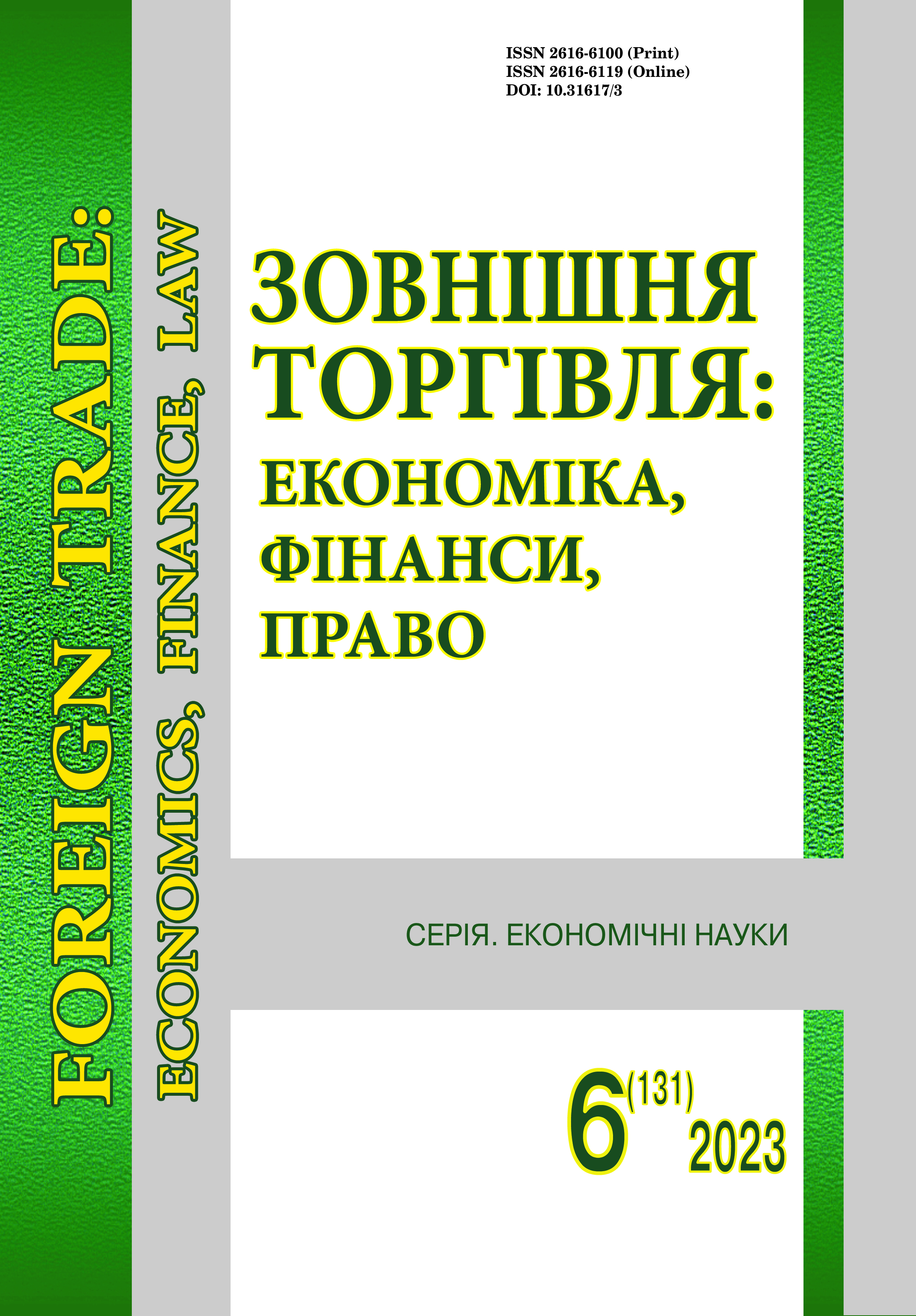Ensuring the demographic resilience of the EU countries
DOI:
https://doi.org/10.31617/3.2023(131)02Keywords:
demographic resilience, European Union, legal regulation, organizational and legal mechanism, migration processes.Abstract
Demographic resilience reflects a countryʼs (or regionʼs) ability and capacity to ensure the quantitative and qualitative reproduction of demographic structures under specific historical, socio-economic, legal, and natural conditions. Demographic processes are of fundamental importance both for national development processes and for achieving global sustainable development goals. It is essential to systematically and thoroughly study the current demographic reality, understand it well, and base rational and effective responses to ongoing demographic challenges on this understanding. The long-term consequences of the COVID-19 pandemic, international conflicts, migration processes, and the mass wave of Ukrainian refugees to EU countries in 2022 have made the topic of researching demographic resilience more relevant. There is no single solution to respond to demographic challenges or fully compensate for the negative consequences of demographic changes. Therefore, it is necessary to implement and develop various adaptive measures and organizational-legal conditions to ensure demographic resilience. The research aims to justify and characterize the key organizational and legal conditions for ensuring demographic resilience in EU member countries. The theoretical and methodological basis of the research are scientific works of foreign and domestic scholars on the selected issue. General scientific and special methods are used, such as theoretical generalization, systemic analysis, systematization, statistical analysis, grouping, and scientific abstraction. Based on the criterion of "social protection of the population," the key organizational and legal conditions for ensuring demographic resilience were identified as follows: quality and accessible healthcare, gender equality, a developed system of social programs and assistance, the implementation of family-friendly policies, and effective management of migrations and refugees. The development of organizational and legal conditions depends on effective state policy and a comprehensive approach to solving this issue. Demographic resilience is one of the essential conditions for achieving sustainable economic development based on a balance between the qualifications of the workforce, their number, willingness, and ability not only to perform specific tasks but also to participate in their formulation and determine the paths to achieving the desired results. The analyzed organizational and legal conditions for ensuring demographic resilience not only affect the social stability of the integration group but also impact the pace of economic development.
References
A Common Agenda for Integration Framework for the Integration of Third-Country Nationals in the European Union. Communication from the Commission to the Council, The European Parliament, The European Economic and Social Committee and The Committee of the Regions. COM (2005) 389 final, 01.09.2005. EUR-Lex. https://bit.ly/3ypF0dL
Borawska-Kędzierska E., & Strąk K. (2009). Przestrzeń Wolności, Bezpieczeństwai Sprawiedliwości Unii Europejskiej: politykawizowa, azylowaiimigracyjna. Warszawa: Inst. Wydaw. Euro Prawo. xv, 190 s. System Prawa Unii Europejskiej. Podręcznik; t. 11, cz. 2.
Capdevila, P., Stott, I., Beger, M., & Salguero-Gómez, R. (2023). Towards a Comparative Framework of Demographic Resilience. Trends in Ecology & Evolution, Vol. 35, Issue 9, pp. 776-786. https://www.cell.com/action/showPdf?pii=S0169-5347%2820%2930131-2 https://doi.org/10.1016/j.tree.2020.05.001
Colantoni, A., Halbac-Cotoara-Zamfir, R., Halbac-Cotoara-Zamfir, C., Cudlin, P., Salvati, L., & Gimenez Morera, A. (2020). Demographic Resilience in Local Systems: An Empirical Approach with Census Data. Systems, 8, 34. https://doi.org/10.3390/systems8030034
European Commission (2020). The Gender Equality Strategy 2020-2025. https://ec.europa.eu/newsroom/just/items/682425/en
Eurostat (2023). Population and social conditions. Population on 1 January. https://ec.europa.eu/eurostat/databrowser/view/tps00001/default/table?lang=en
Federal Statistical Office of Germany (2023). https://www.destatis.de/EN/Themes/Society-Environment/Social-Statistics/_node.html;jsessionid=AD24F08 ADE7 FB6F2E1E46F1145A0E00C.live741
Gender Equality in the European Union (2011). Luxembourg: Publications Office of the European Union.
Govorko, O. (2017) Demographic processes in the health care system. Uzhhorod National University Herald, 13, 60-63.
Health Care Index by Country (2023). https://www.numbeo.com/health-care/rankings_by_ country.jsp?title=2023®ion=150
Muntele, I., Istrate, M., Horea-Șerban, R.I., & Banica, A. (2021). Demographic Resilience in the Rural Area of Romania. A Statistical-Territorial Approach of the Last Hundred Years. Sustainability, 13, 10902. https://doi.org/10.3390/su131910902
Poradnuk (2023). Information portal. Medicine in France. https://poradnuk.com.ua/kraini-svitu/europe/france/medytsyna-frantsiyi.htm
Poradnuk (2023). Information portal. Medicine and treatment in the Netherlands. https://poradnuk.com.ua/kraini-svitu/europe/netherlands/medytsyna-u-niderlandakh.htm
Poradnuk (2023). Information portal. Denmarkʼs health care system. https://poradnuk.com.ua/kraini-svitu/europe/denmark/medytsyna-daniyi.htm
Regulation (EU) (2013). No 604/2013 of the European Parliament and of the Council of 26 June 2013 establishing the criteria and mechanisms for determining the Member State responsible for examining an application for international protection lodged in one of the Member States by a third-country national or a stateless person (OJ L 180, 29.6.2013, p. 31-59). EUR-Lex. https://bit.ly/3smNtuu
UNFPA (2022). Annual report 2021. https://ukraine.unfpa.org/sites/default/files/pub-pdf/annual_report_2021_ukr.pdf
UNICEF (2019). Are the worldʼs richest countriesfamily friendly? Policy in the OECD and EU. https://www.unicef-irc.org/publications/pdf/Family-Friendly-Policies-Research_UNICEF_%202019.pdf
United Nations Population Fund (2020). Gender Equality and Response to Domestic Violence in the Private Sector of Ukraine: Call for Action. https://ukraine.unfpa.org/sites/default/files/pub-pdf/Gender%20Equality%20and%20Response%20to%20Domestic%20Violence%20in%20the%20Private%20Sector_2.pdf
World Economic Forum (2023). Global Gender Gap Report. https://www3.weforum.org/docs/WEF_GGGR_ 2023.pdf
Zaiukov, I., Lavrov, R., & Oliinyk, L. (2021). Current trends in the natural movement of population as a factor of ensuring demographic sustainability of Ukraine. Economy and Society, 24. https://economyandsociety.in.ua/index.php/journal/article/view/181/173
Nepytaliuk A. (2018). Demographic resilience and economic growth: issues of theory and methodology. Scientia fructuosa, 6 (122). http://journals.knute.edu.ua/scientia-fructuosa/article/view/742/682
Kozlovsky, S., & Nepytaliuk A. (2019). Theoretical aspects of demographic resilience. Economics and Management Organization, 3 (35). https://jeou.donnu.edu.ua/article/view/7742
Kozlovsky, S., Mazur, H., & Nepytaliuk A. (2019). Demographic resilience of society as a basis of economic development. Economy and the state, 10. http://www.economy.in.ua/pdf/10_2019/4.pdf; https://doi.org/10.32702/2306-6806.2019.10.14
Sakharchuk, T. (2019). Family is more important. Family Friendly Policies - what it is and why it is beneficial for business. BUSINESS. https://biz.nv.ua/ukr/experts/semya-vazhnee-chto-takoe-family-friendly-policies-i-pochemu-eto-vygodno-biznesu-50048386.html
Additional Files
Published
How to Cite
Issue
Section
License

This work is licensed under a Creative Commons Attribution 4.0 International License.
This work is licensed under a Creative Commons Attribution 4.0 International (CC BY 4.0)







